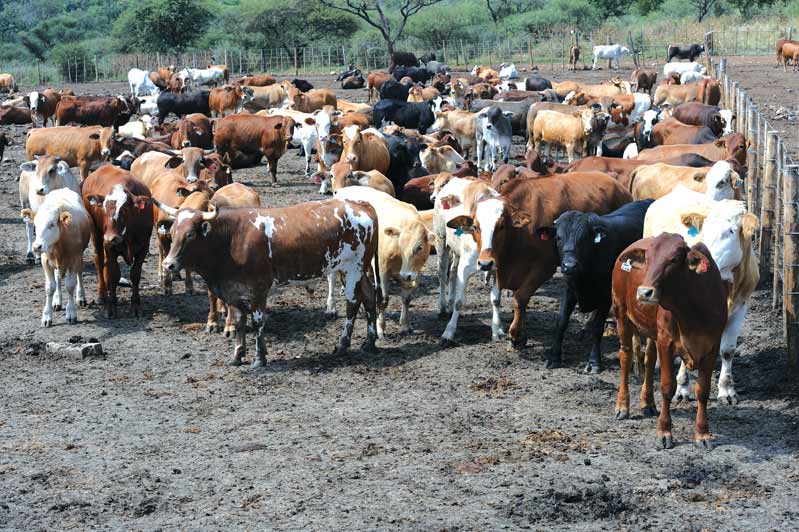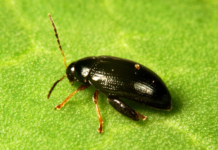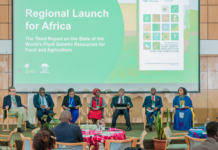On Monday Nov. 4 Prince William arrived in Cape Town, bringing to Africa his mission to combat the world’s pressing environmental challenges.
This four-day visit of regal lustre takes place to showcase his prestigious Earthshot Prize, aimed at finding innovative solutions to the present climate issues and their inherent dangers to humanity. Leading up to the glamorous awards-ceremony gala on Wednesday, Nov. 6 at the Cape Town Stadium, Earthshot Week sees the heir to the throne involved in a series of events with the local youth, the Earthshot community and key environmental stakeholders. One hundred and twenty future leaders aged 18 to 35 and passionate about driving transformative change in climate action and sustainability will immerse themselves in Eathshot’s drive to develop the essential skills for them to succeed in their initiatives.
The Earthshot Prize exists to discover, spotlight and help grow innovative solutions that are working to repair and regenerate our planet. Out of 432 nominations from 75 countries the finalists will be present with the five winners of this year’s Earthshot Prize unveiled during the awards ceremony. The event will take place in The Earthshot Prize Dome, a purpose-built venue beside Cape Town Stadium using a structure designed and engineered locally. Cape Town Mayor Geordin Hill-Lewis has said “We are excited to join the insightful discussions taking place throughout the week on solutions to the major environmental issues of our time.”
Africa was chosen as the fourth continent to host the star-studded event in acknowledgement of its enormous contribution to enhancing climate action and tackling the biggest environmental challenges our planet faces. Despite contributing the least to global warming and having the lowest emissions, Africa is the most vulnerable continent to the impacts of a changing climate. “Africa has always held a special place in my heart – as somewhere I found comfort as a teenager, where I proposed to my wife and most recently as the founding inspiration behind The Earthshot Prize. It was in Namibia in 2018 that I realised the power of how innovative, positive solutions to environmental problems could drive transformative change for humans and nature,” said Prince William, Founder & President of The Earthshot Prize.
ProVeg South Africa, a food-awareness non-profit based in the host city for the awards ceremony, congratulates the finalists and winners of this year’s Earthshot Prize and wholeheartedly endorses widespread and resolute efforts to address climate change, its various causes and the resulting environmental crises. However – while the majority of the nominations considered are for projects involving energy, transportation, infrastructure, materials manufacturing, petrochemical replacements, recycling and waste management; there is one critical area of climate and environment action which remains largely unexamined – which is animal agriculture.
Where are all the novel animal product alternatives? Where are the new technologies to help us transition from industrial animal agriculture to more sustainable modalities? And where is that coveted break-through in vegan cheese?
The food we choose can have a significant impact on the environment. Numerous studies have shown that plant-based foods and alternatives to animal-based products can reduce climate impact by up to 90%, compared to animal-based foods, while also lowering other environmental burdens. If broadly adopted, meat alternatives could contribute to the large-scale mitigation of greenhouse gas emissions. Half of the habitable land on earth is used for agriculture, including the production of feed crops and animal-based foods.
The current rate of extinction is tens to hundreds of times higher than the average over the past 10 million years. The earth is currently undergoing its sixth mass extinction as a result of human activity; largely based on consumption habits. Agriculture is the biggest driver of deforestation and biodiversity loss. Most agricultural land is used to produce animal-based products. What we eat can have a bigger impact on land use than how much we eat. Reducing our reliance on animal agriculture can increase efficiency and food security by freeing up land to grow crops for direct human consumption. At the same time forests are vital for global biodiversity and play a crucial role in climate-change mitigation because they act as a huge carbon sink. Agriculture, particularly driven by the increasing production and consumption of animal-based products, is the main cause of global deforestation. A transformation of the food system that reduces our reliance on animal-based products can help to protect some of the most important ecosystems on earth. Globally 86% of species at risk of extinction are threatened by agriculture.
A new report suggests that further degradation of the Amazon biome could turn one of the world’s most important carbon sinks into a permanent source of emissions. Key Cases of Carbon Loss & Gain is the latest in a series produced by MAAP (Monitoring of the Andean Amazon Basin Project). It finds that the Amazon region has still technically functioned as a carbon sink over the last decade, but only marginally. This marginal gain is “reinforcing concerns” that the Amazon biome could reach a tipping point and become a permanent carbon source.
Moving towards plant-based diets will allow us to sequester carbon as well as reduce food-system emissions. When land used for the production of animal-based foods is repurposed, reforested, and rewilded, it can sequester and store further carbon and provide a home for wildlife. On top of that a third of all food is lost or wasted along the supply chain. The production of animal-based foods is especially resource-intensive as the amount of feed required is far higher than the end product yielded. Plant-based foods can be produced more efficiently with fewer resources. Increasing the share of plant-based food production could increase efficiency and significantly decrease the amount of resources required, thus helping to feed the global population without exceeding planetary boundaries.
As we face global issues of biodiversity loss, climate change and environmental decay; we should consider acknowledging and rewarding more the initiatives that tackle the food system and transition society to increased plant-based consumption in place of animal products. Just merely changing what we eat is a highly effective ‘Earthshot’ in itself, and while other areas such as energy and transportation are nearly impossible for people to address on an individual level: a personal dietary shift towards plant-based provides the biggest, easiest, most realistic positive change and impact that can be made by oneself for the environment.
Prince William’s visit to the Mother City coincides with the initial days of World Vegan Month in November – a landmark period on the plant-based calendar for addressing awareness of the benefits of non-animal agriculture and consumption.
Statistics and graphics from Food System Data by ProVeg International.








